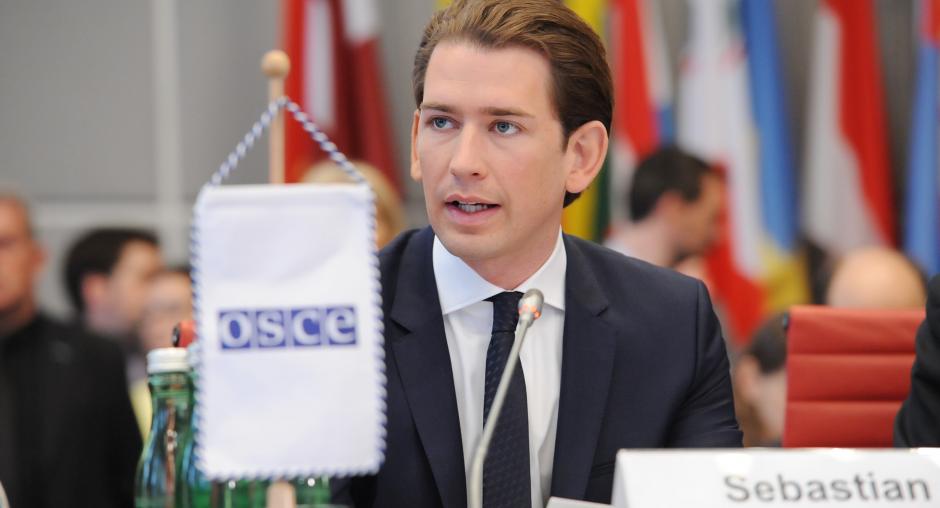Engaging youth is crucial to efforts to countering violent extremism, says OSCE Chairperson-in-Office Sebastian Kurz

VIENNA, 23 May 2017 – Young people are most vulnerable to terrorist radicalization and greater efforts should be made to prevent youth from being misled by violent extremists, said OSCE Chairperson-in-Office and Austria’s Foreign Minister Sebastian Kurz today as he opened the 2017 OSCE-wide Counter-Terrorism Conference in Vienna.
The conference, this year focusing on the theme of violent extremism and radicalization that lead to terrorism (VERLT), brings together more than 500 high-level participants including Austria’s Interior Minister Wolfgang Sobotka, practitioners, academics and civil society representatives from across the OSCE region.
”No country in the OSCE region is immune from radicalization and terrorism. Only through enhanced regional and international co-operation can we fight radicalization, especially that of young people. They need to be included in finding innovative strategies on countering violent extremism,” said Minister Kurz. “Close co-operation with the media, especially social media to develop measures to eliminate terrorist propaganda are equally important as are enhanced police measures for the effective exchange of information and better border controls to ensure the internal stability of states, the rule of law and basic freedoms.”
Over the course of two days, the conference participants will focus on national experiences and international co-operation in countering terrorism, engaging and empowering youth in preventing and countering VERLT, good practices regarding rehabilitation and reintegration, and the prevention of VERLT.
At the start of the conference, participants heard keynote speeches by the European Commissioner for the Security Union, Julian King, and the Goodwill Ambassador of the UN for the Dignity of Survivors of Human Trafficking, Nadia Murad. These were followed by a high-level discussion moderated by OSCE Secretary General Lamberto Zannier, which featured Belgium’s Deputy Prime Minister and Interior Minister, Jan Jambon, Bosnia and Herzegovina’s Minister of Security, Dragan Mektić, and the Special Representative of the OSCE Chairperson-in-Office on Countering Radicalization and Violent Extremism, Peter Neumann.
“Too many young people from all over the world are still recruited by terrorist organizations,” said Secretary General Zannier. “This means that we have a lot more to do to reach out to youth and listen to what they have to say in order to rally them to the cause of promoting and protecting human rights and fundamental freedoms, as well as peace, security and co-operation.”
The conference places a strong emphasis on engaging youth and will provide a platform for youth representatives to present their recommendations to policy-makers. The recommendations were compiled over the past year during workshops on youth and the prevention of violent extremism in Western Europe, the Black Sea region, South-Eastern Europe and Central Asia, organized by the OSCE Chairmanship under the umbrella of the OSCE’s United in Countering Violent Extremism campaign (#UnitedCVE).
Civil society organizations and other local actors will also have the opportunity to reflect upon the issues on the Counter-Terrorism Conference agenda during a “Civil Society Day” organized in collaboration with the Prevention Project NGO on 25 May. Participants will share good practices, lessons learned and their understanding of the challenges. They will also offer concrete proposals for scaling up successful approaches and overcoming obstacles, looking at both the political and funding landscapes. The outcomes of this event will be summarized in a short report that will be distributed to all conference participants and the broader OSCE community.
